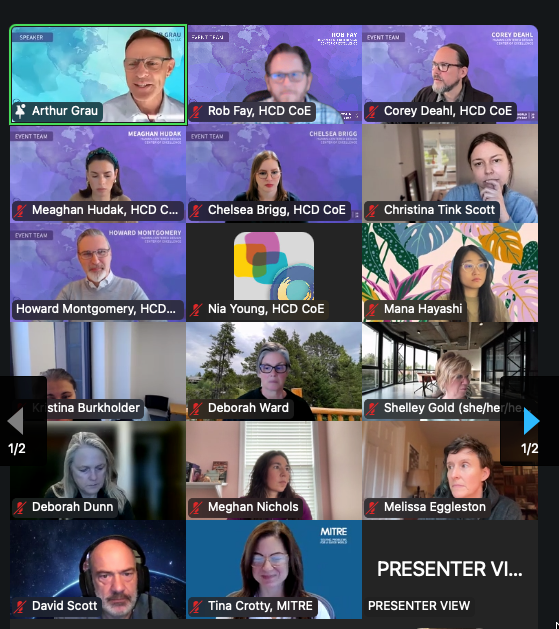
Event Photos
CCSQ’s 6th Annual World Usability Day was a celebration of usability and good design. Our diverse group of speakers led us in an exploration of interactive sessions, collaborative how-to presentations and customer experience strategy. Check out the highlights below!
Welcome Address from CMS
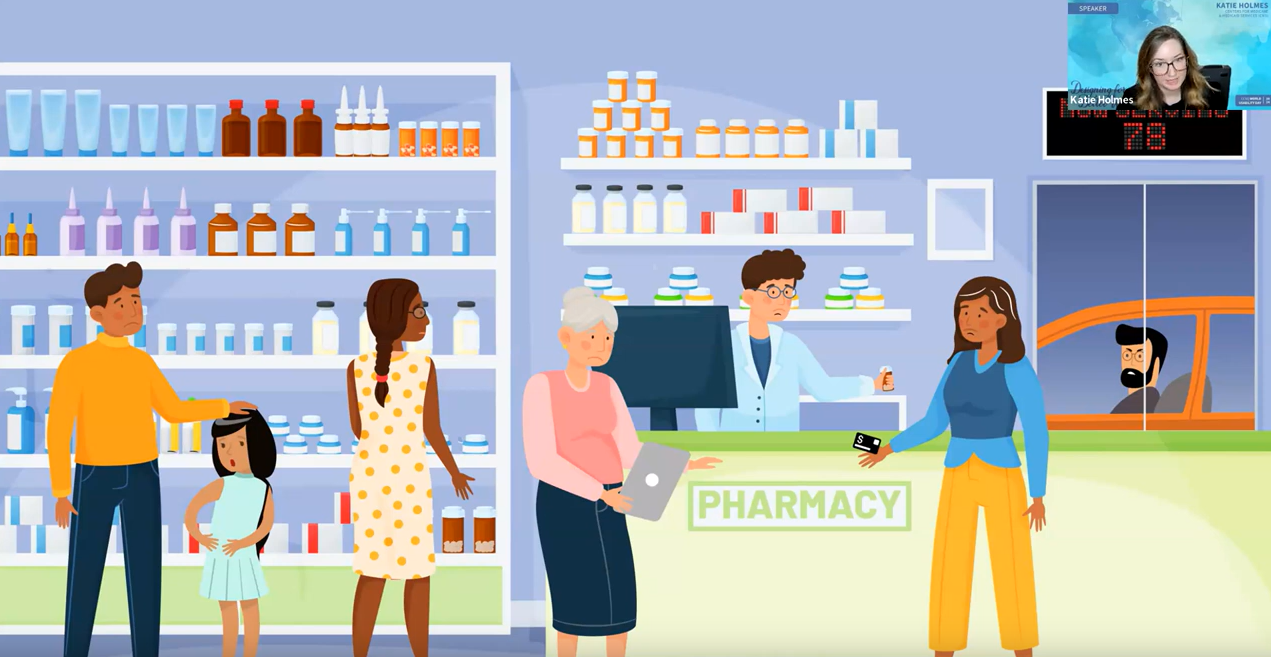
Katie Holmes - Deputy Director, DQSGED, CCSQ, gave a welcoming invitation and offered a real-life example of design, its impact
and if it's beneficial for the user.
Keynote Presentation: Policy Design for System Health: Moving from Service Design to Systemic Design through Policy
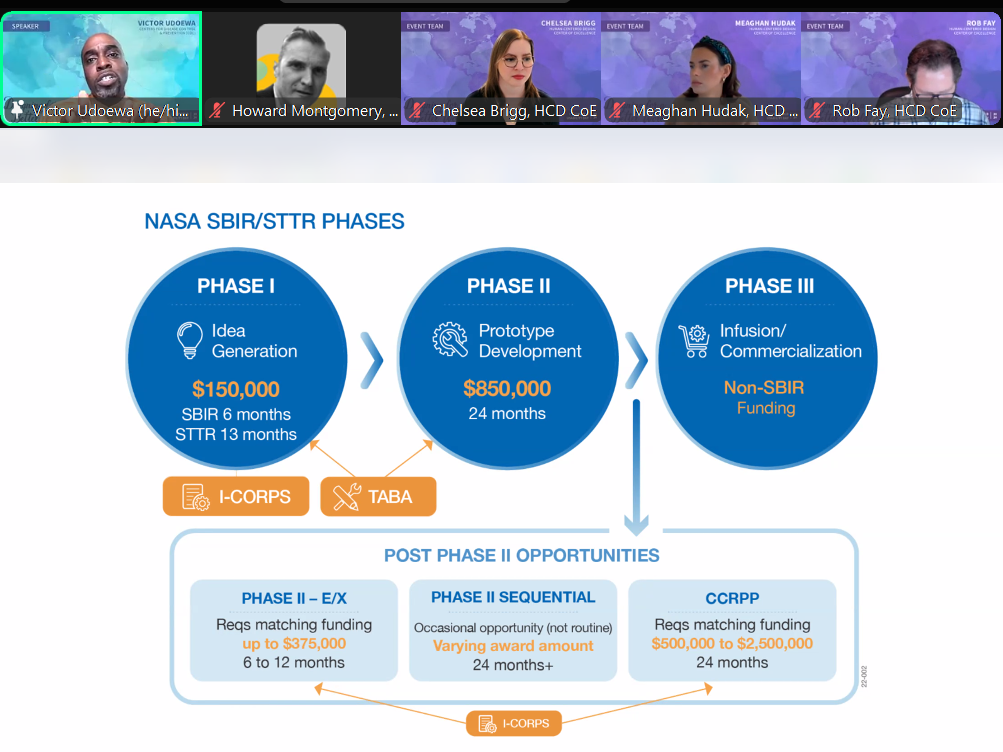
Victor Udoewa, Service Design Lead with the CDC, provided an insightful discussion on how public service designers address
challenges that span multiple services and agencies.
Morning Plenary Session: Designing from an Emerging Future: Levels of Listening
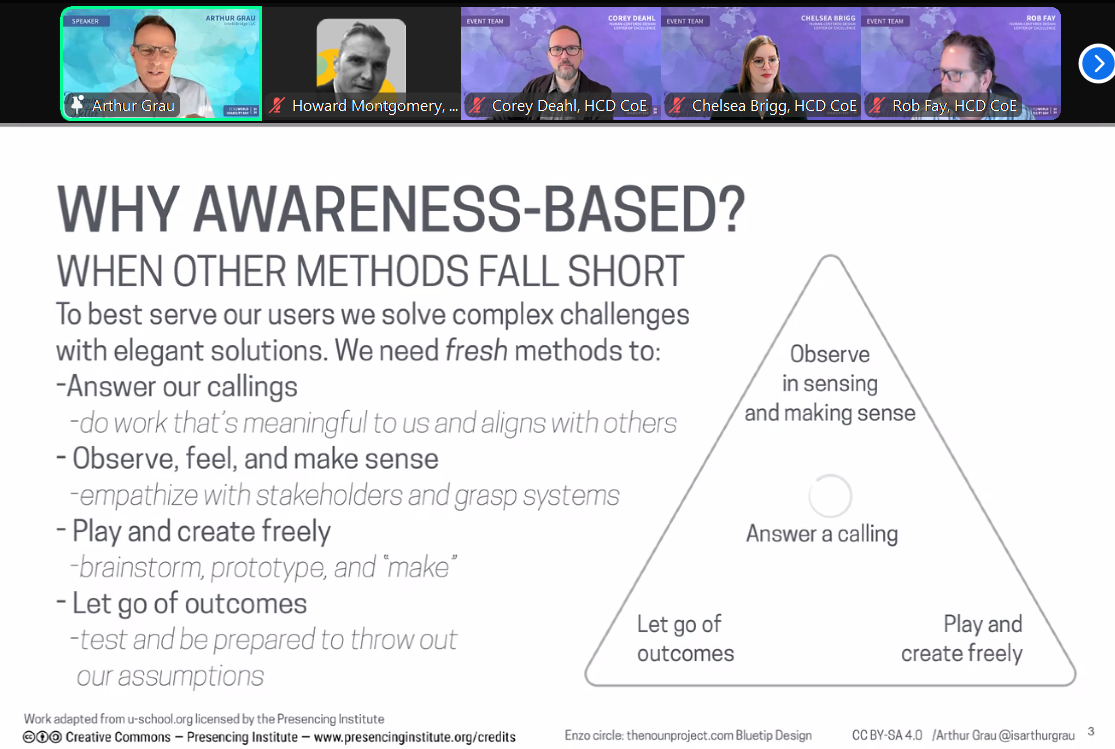
Arthur Grau, Service Design Strategist with IntelliBridge LLC, offered a deeper understanding of how mindset influences problem-solving
to tackle complex challenges with creative, thoughtful solutions.
The Health and Human Services Customer Experience Initiative
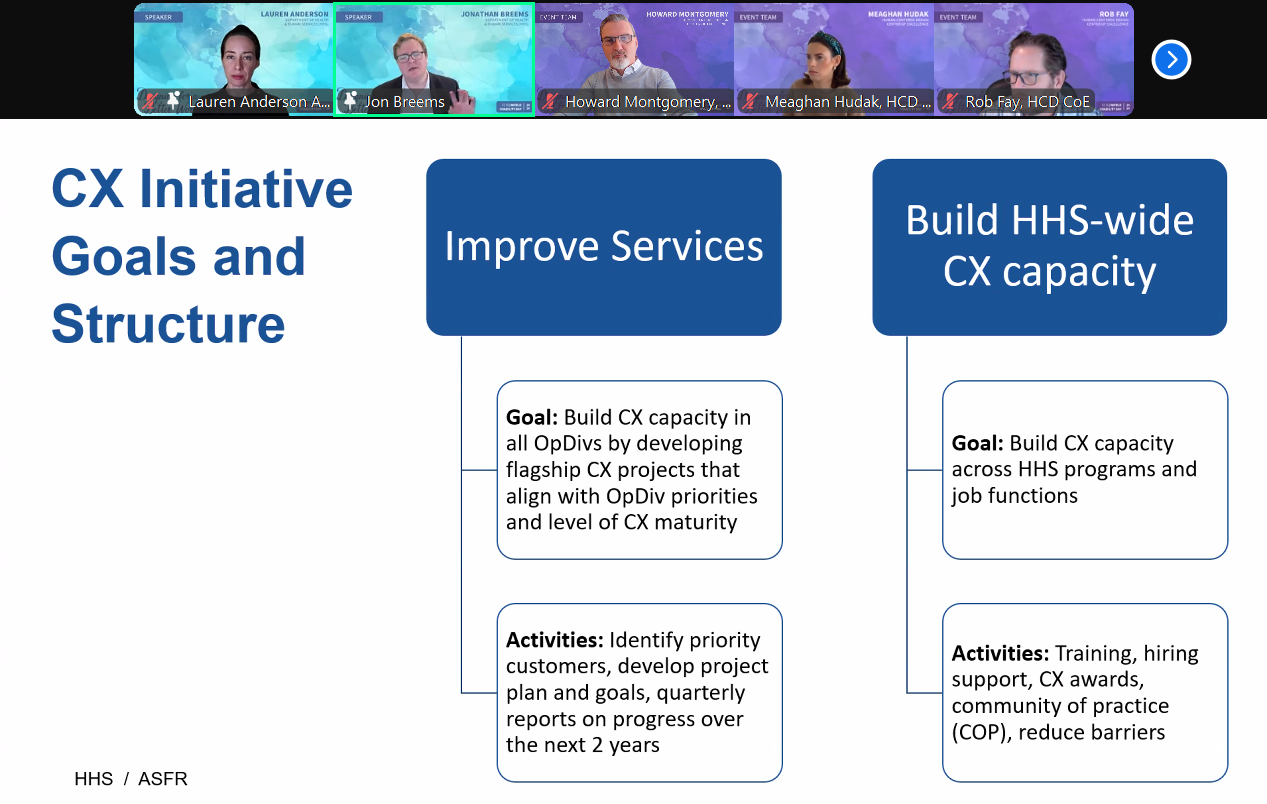
Lauren Anderson, Management Analyst, and Jonathan Breems, Senior Customer Experience Strategist, with HHS, introduced
some of the key goals and strategic objectives of the HHS Customer Experience Initiative.
Accessible Plain Language: Weaving Language, Experience, & Accessibility

Sharon Attipoe-Dorcoo, Senior Human-Centered Designer with DHS, explored how Accessible Plain Language (APL) goes beyond
simple communication to focus on people’s experiences in language services.
Afternoon Plenary Session: Virtual Reality: Leveraging Innovative Technologies to Increase Empathy
and Improve the Patient Experience
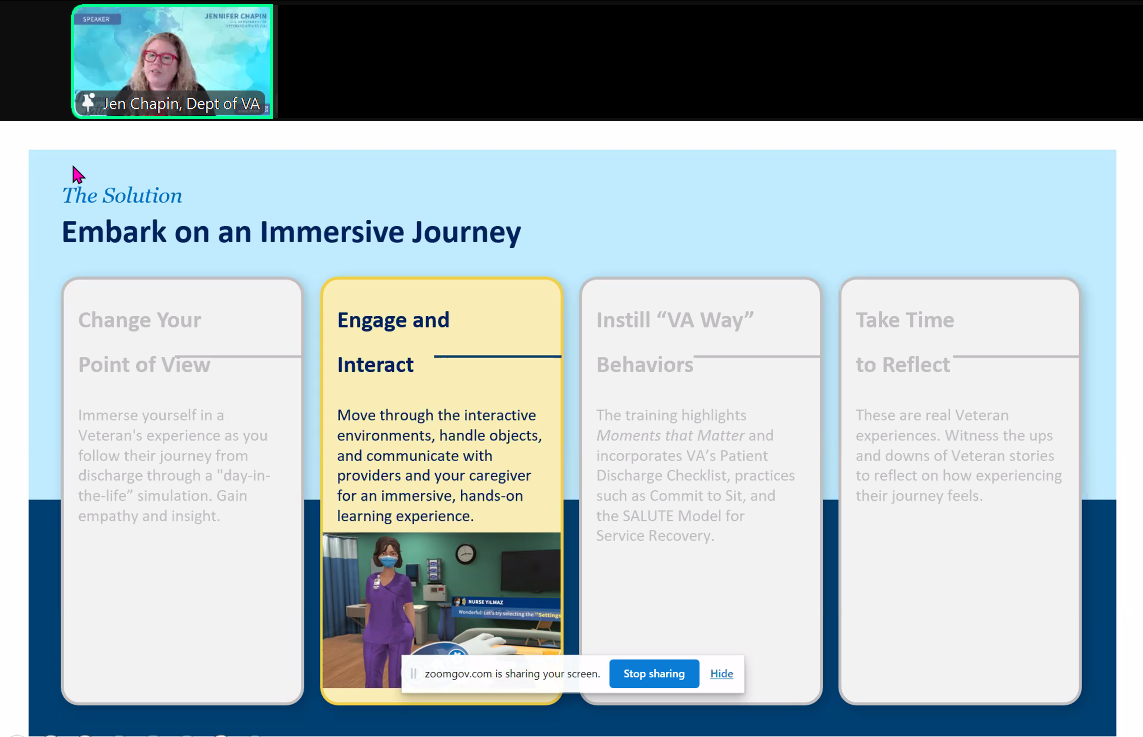
Jennifer Chapin, Customer Experience Advisor with the VA, invited the audience to explore the impact of VR training on the patient
and employee experience.
Building Panels to Improve Customer Experience
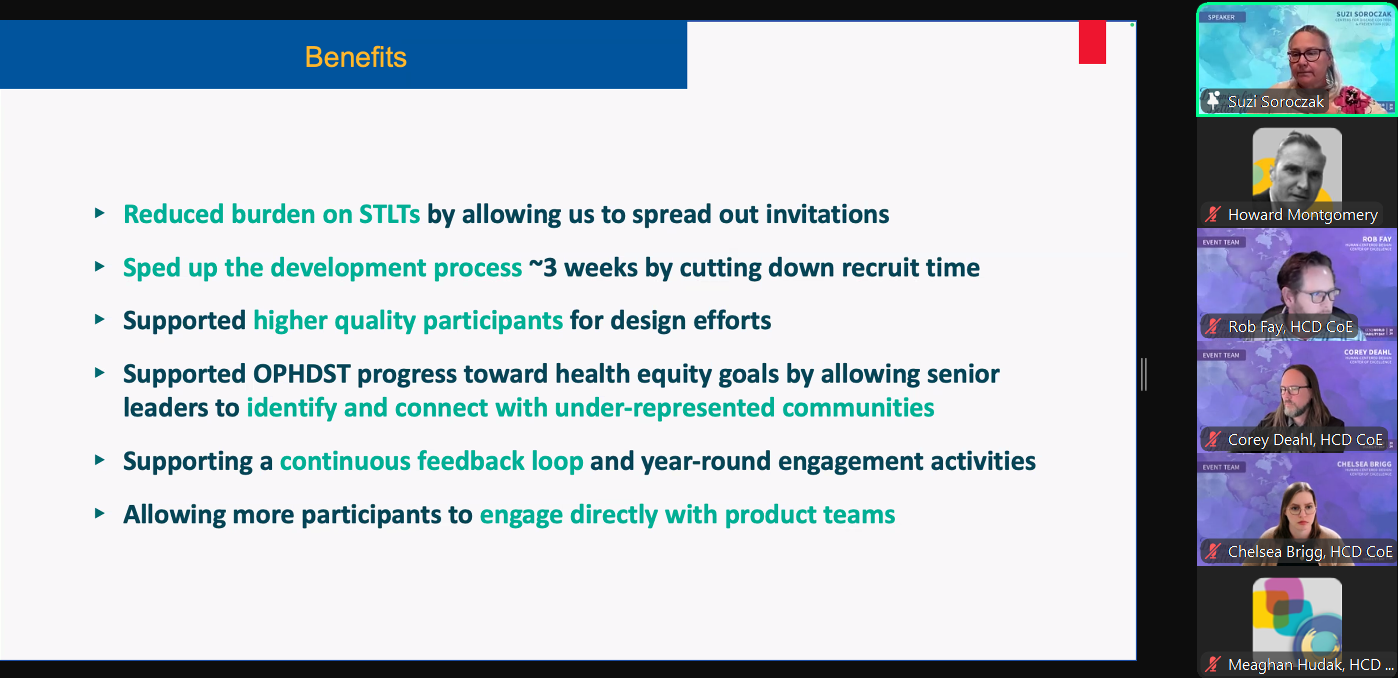
Suzi Soroczak, Human-Centered Design Research Straetgist with the CDC, provided insightful discussion on how to develop a user panel
and shared examples of its successful use in research and design activities.
Fireside Chat: Human-Centered Design and Government Space

Corey Deahl with the HCD CoE sat down with Glennette Clark, Presidential Innovation Fellow with CMS, for an informal and interactive
fireside conversation exploring the cultural challenges of change, critical inflection points for progress to occur and what are new
horizons for consumers and the HCD practice.
The Magic Matrix: How a “Matrix” HCD Model Can Drive Human-Centered Design Strategy on
Highly Technical Programs
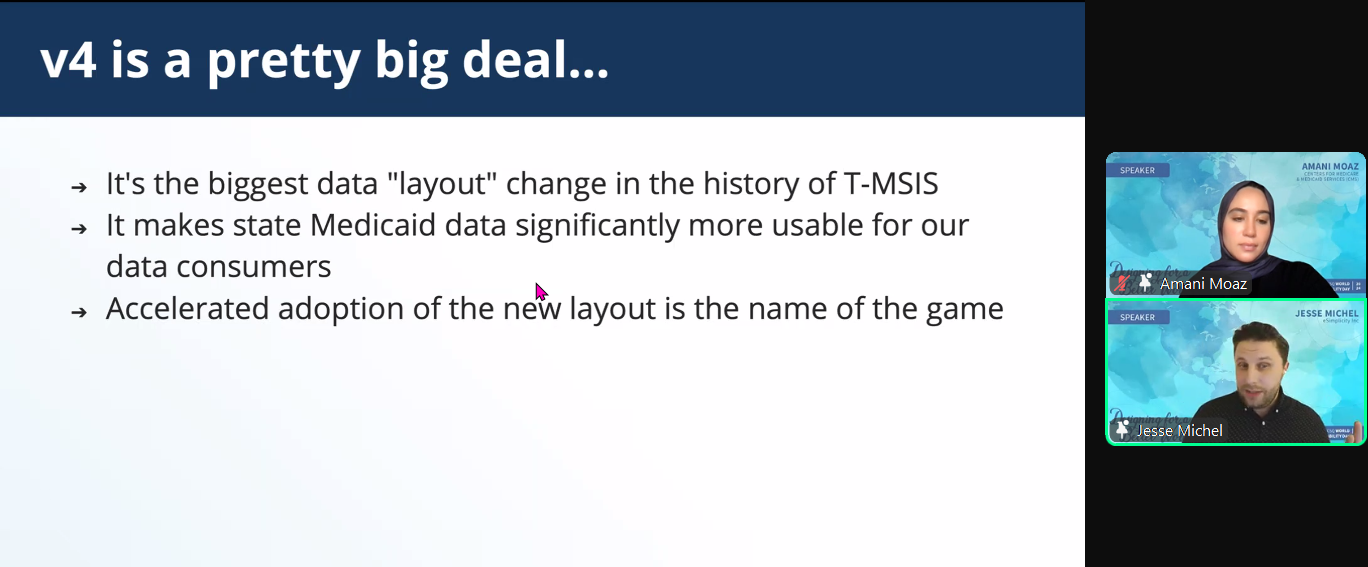
Jesse Michel, Human-Centered Design Lead with eSimplicity Inc, and Amani Moaz, Human-Centered Design Lead with CMS, provided
an engaging discussion on the challenges, lessons learned, and benefits of the matrixed approach for improving strategies and outcomes
in data-driven programs.
WUD Audience, HCD team and Presenters
